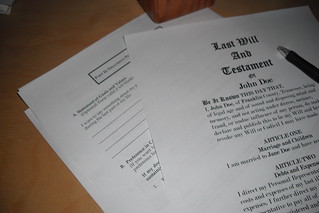The Clintons recently made the news simply for taking advantage of Estate Planning and financial planning strategies that maximize wealth and limit the encroachment of taxes. With an estate tax that has an upper limit of 40 percent of assets on death, it only makes sense for those with bigger estates to conduct some planning well in advance.

(Photo Credit: ihearttheclintons.tumblr.com)
One of the most important steps taken by the Clintons was the transfer of their New York house into a residence trust, a move they made back in 2011. These trusts have major advantages, including house value appreciation as an occurrence outside the taxable estate. The overall goal for many estate planning attorneys and other financial experts is to help build up the nontaxable estate as much as possible.
This transfer of ownership of the house specifically is a tool that could have implications for numerous Americans concerned about the tax hit on their estate. A sample strategy involving this plan is to divide house ownership in half and storing that ownership in two separate trusts. While continuing to live in the house, ensure that the trust is structured to pass on to heirs in 10 years. Remember, the growth value during that period falls outside your estate. At the end of the 10 year period, pay rent to the heirs if you plan to continue living in the house. Those rent payments are also shielded by passing outside of the estate, protecting them from tax.
For more tax-saving strategies and long-term financial planning, contact our office today. Call us at 732-521-9455 or send an email to info@lawesq.net



















